Security. We all need it from our iron doors, and the locks we choose play a crucial role in bumping up the protection a door provides to your home. Fail to find the perfect match between door and lock, and you make it easier for people to gain access when they're not wanted.
But if you get it right, your lock becomes a barrier so strong that it seems like it's crafted by wizards of home security. You just have one challenge to face: finding the right lock to ensure entry is impossible for all but you and anybody else who has a key. These tips will guide you in the direction of a lock designed specifically for your door.
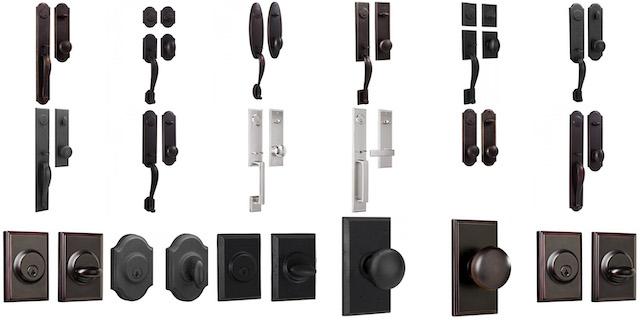
Tip 1 - Understand the Different Lock Types
In a simple world, all doors would use the same type of lock and you wouldn't have to worry about choosing a type. But that simple world would make it far easier for thieves to figure locks out. Plus, you'd have fewer options for door hardware, creating a homogeneous look and feel for every home.
So, there are different types of locks used for different types of doors. These are the four most common.
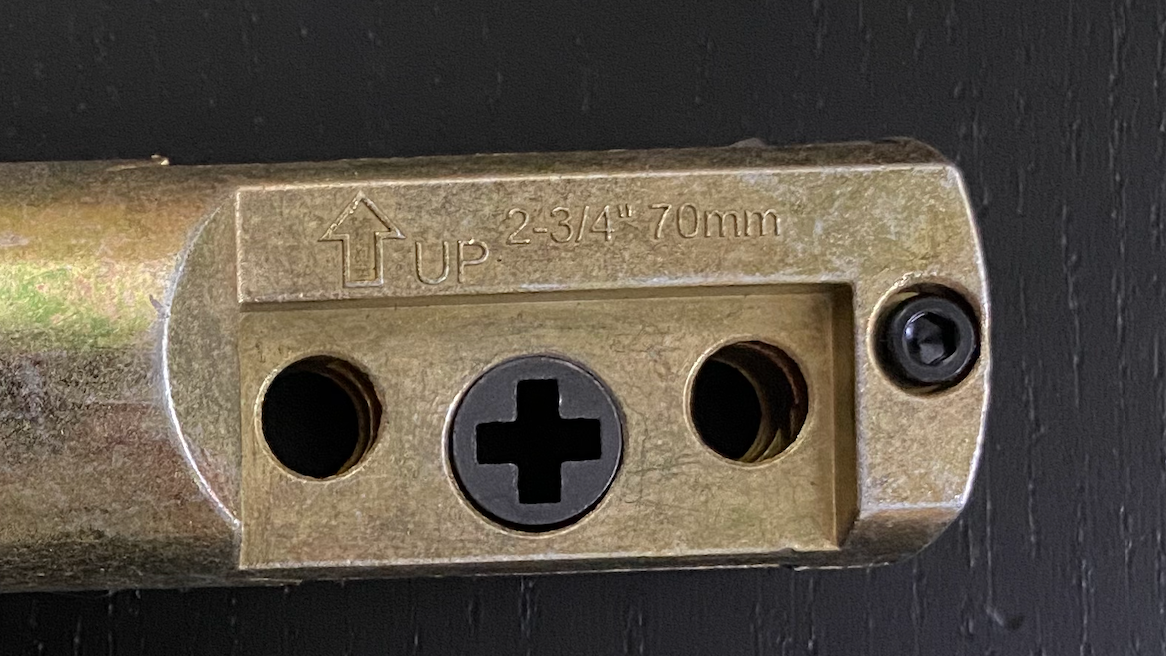
Five-Lever Mortise Deadlock
This is the type of lock used for the majority of residential homes, and unless you've gone out of your way to buy a different type of lock, it's likely the one used in your current front door. Operation is simple: the lock acts like a deadbolt that locks or unlocks based on your actions. There's no automatic locking with a five-level mortise. It requires manual action every time.
There are benefits to a non-automatic lock, especially if you're the type of person who has a habit of forgetting your keys. Five-lever mortise deadlocks won't leave you locked out. But they're also not great if your forgetfulness extends to failing to lock your door when you're not around. A burglar just needs to give the door a little push, and they're in.
Five-lever locks are common in wooden doors but won't offer the strength needed for a steel or iron door.
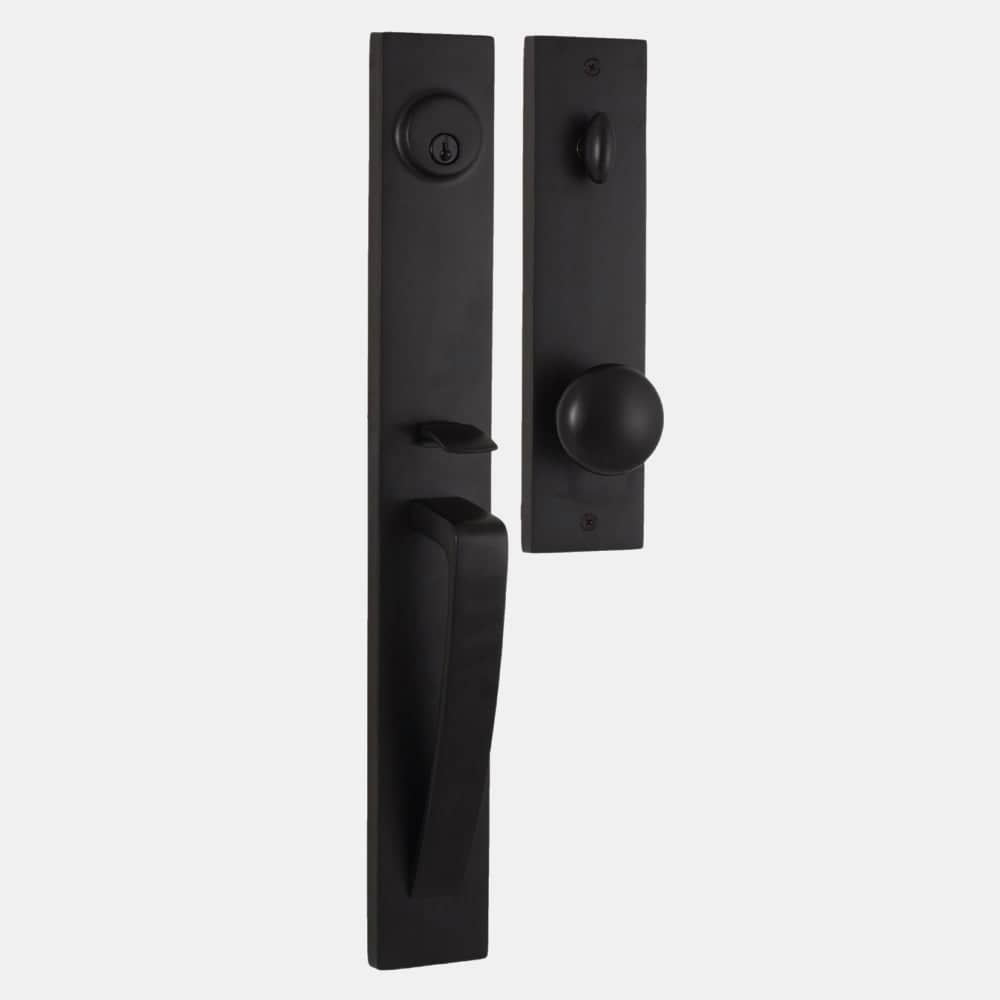
Multi-Point Key-Based Lock
In many ways, a multi-point lock works like a mortise deadbolt. You turn a key to lock or unlock the door, and there's no automation involved. But where the latter only locks the door near the handle, a multi-point lock delivers exactly what it says – multiple points of locking.
There are several bolts built into the door, with matching locking points in the frame, that all activate with the turn of a key or knob. More bolts mean more work for anybody who wants to break in. So you'll often get more peace of mind from a multi-point lock than you would from a mortise lock.
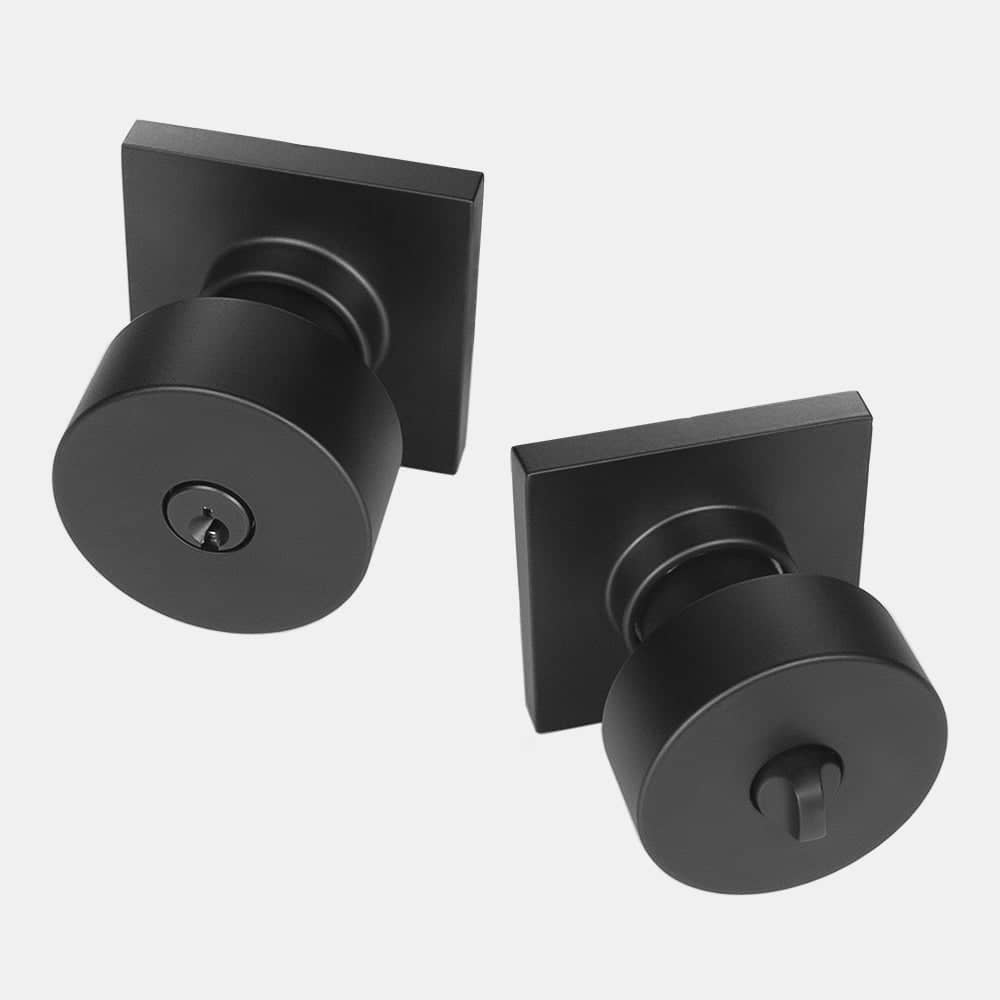
Rim Automatic Dead Hatch
Automatic locking comes into place with a rim automatic dead hatch lock, meaning you don't need a key to lock the door from the outside. But that automation works differently from how you may expect. From the outside, the door will lock automatically but may require you to turn the handle and engage a deadbolt with your key for more security.
From the inside, you'll usually have a latch you can turn to disengage the dead hatch. But if the dead hatch is combined with a mortise lock (to double up on security), you'll have the option of using a key to engage the mortise lock even when you're inside.
These types of locks are common in commercial premises, apartments, and student accommodations.
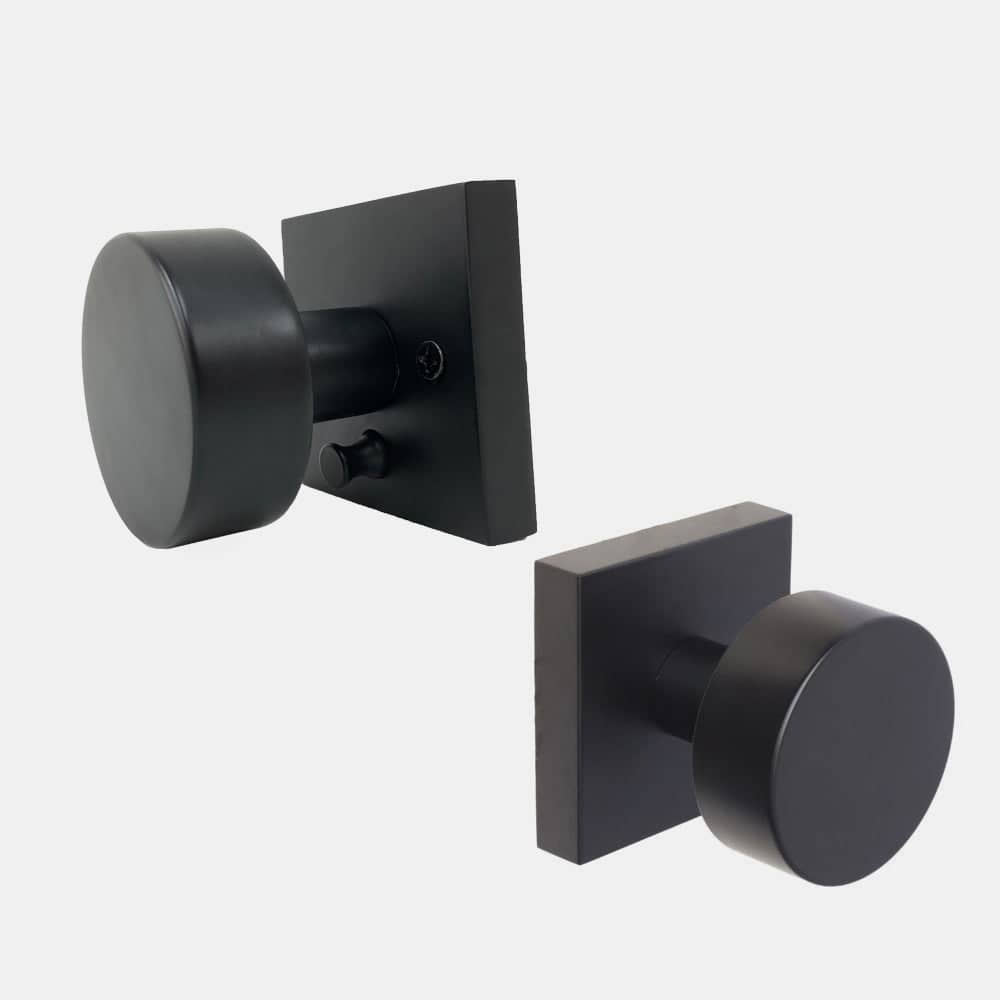
Smart or Electronic Lock
Here's where locks get technical. Smart and electronic locks are a good choice if you want added security, have a commercial premise, or simply don't trust the old "lock and key method."
Examples of the electric kind include keypad entry, where the user enters a keycode that activates the lock, or swipe cards that contain data specific to the lock. Biometric locks are also a possibility. For instance, retina and fingerprint scanners only release the lock if they confirm the biometric data of the person trying to gain access. It's very high-tech. But it may not be suitable for a simple residential door.
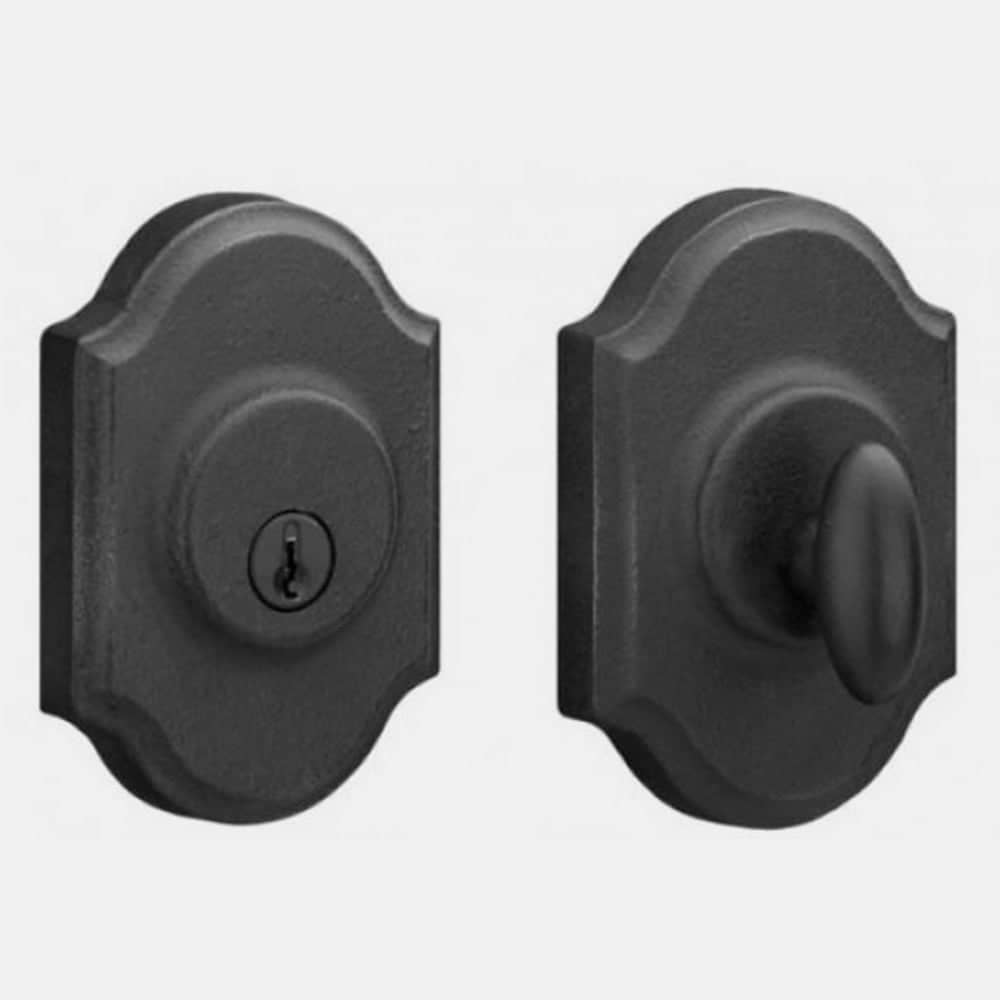
Tip 2 - Consider Door Hardware Security
The American National Standards Institute (ANSI) grades locks on a scale from 1 to 3. A grade of 1 means the lock is ideal for commercial use based on several factors, such as requiring 10 blows or more from a heavy object to shatter the lock. Grades 2 and 3 are what you're most likely to see for residential locks, with 2 being more secure than 3.
Look for an ANSI rating on the lock.
If you find one, that means somebody has done the job of testing the lock to ensure it provides an appropriate amount of protection to the customer. As a side note, any lock with an ANSI grade can withstand a minimum of 360 pounds of force applied to it.
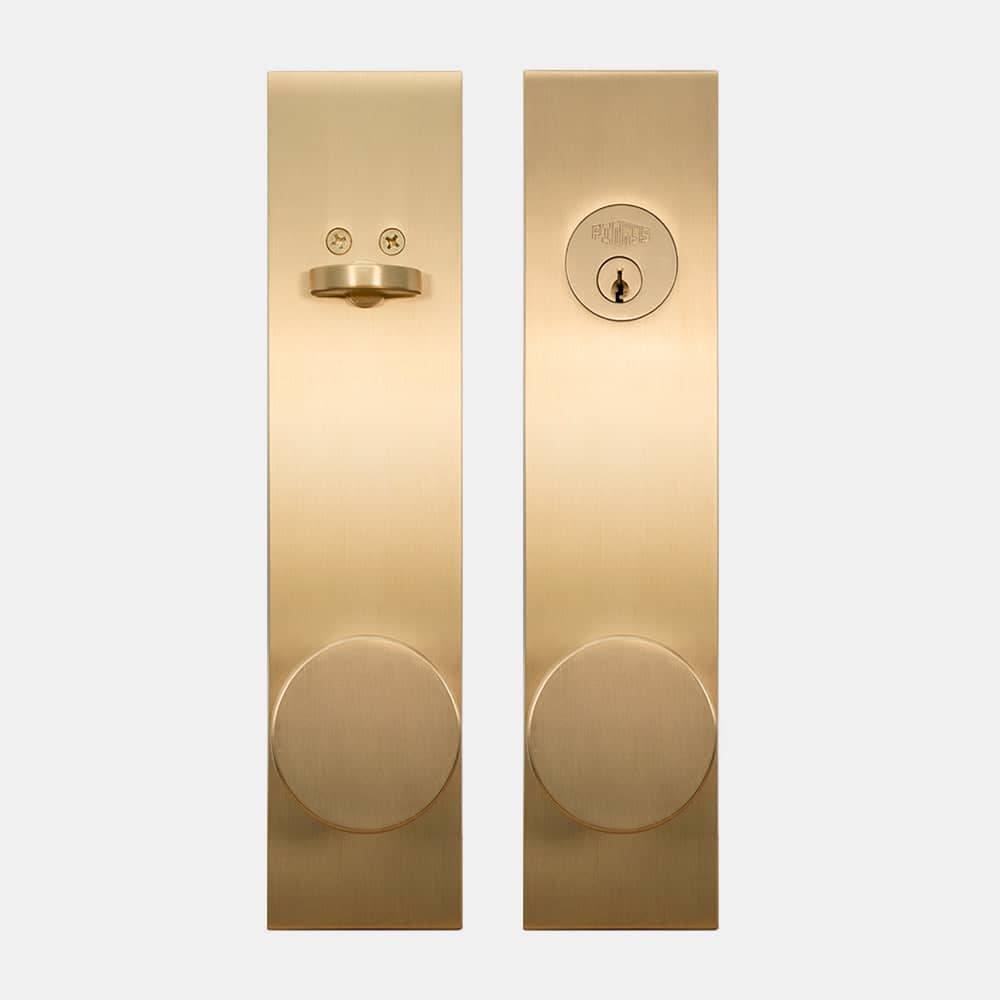
Tip 3 - Inspect Both the Lock and Keys
Carry out an inspection on every bit of the door hardware you receive before installing it on your door.
On the lock side, your first check is operational: does the key turn easily enough to activate or deactivate the lock when needed? After confirming that it does, look for defects. Make sure the case has no scratches or dents. Either could be a vulnerability that somebody could exploit to get through the casing and into the locking mechanism.
Cast your eye on the key once you're happy with the casing. A good key should be smooth on the sides, with no unexpected bumps or nodules that make it harder to fit into the lock. If you hear grinding when you insert the key, there could be a design flaw that's going to wear down the locking mechanism and make your keys less effective. Smooth and simple is the order of the day when it comes to keys.
Tip 4 - Check the Keyhole
If a thief can't bludgeon a lock apart using a blunt object, either because the lock is too tough or they don't want to make any noise, they'll switch to using thin tools to tamper with the mechanism via the keyhole. Master keys and metal wires are the tools of this particular criminal trade. Thus, the simplicity of the lock's keyhole can make the burglar's job easier if you're not paying attention.
Simply put, wide or large keyholes make it easier for people to slide things other than your keys into them. You see this a lot with old locks, which used bulky keys that needed plenty of room to enter. While those locks often still have effective deadbolts, they’re also easier to "catch" with a piece of wire because there's plenty of room for a thief to manipulate the mechanism.
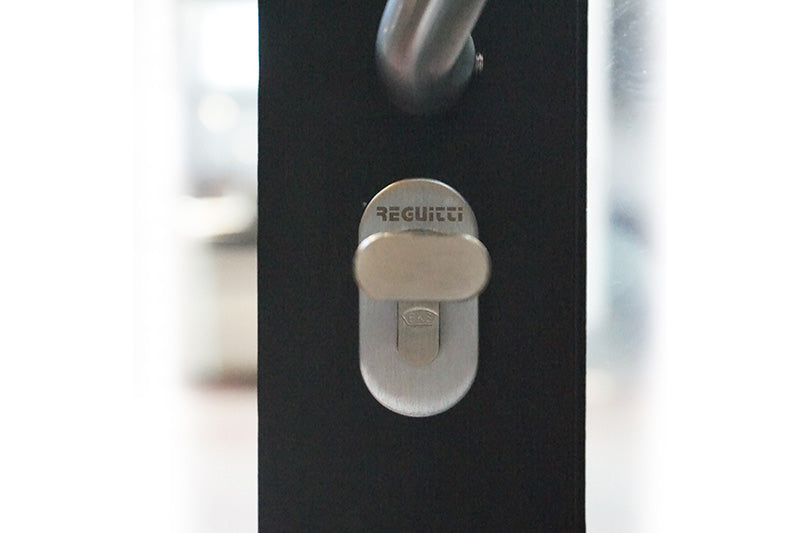
Ideally, the lock will be so thin and narrow that it's almost impossible to slot a master key inside. A wire may still fit. But without much room to move the wire around, the burglar has a much harder time making contact with the internal mechanism.
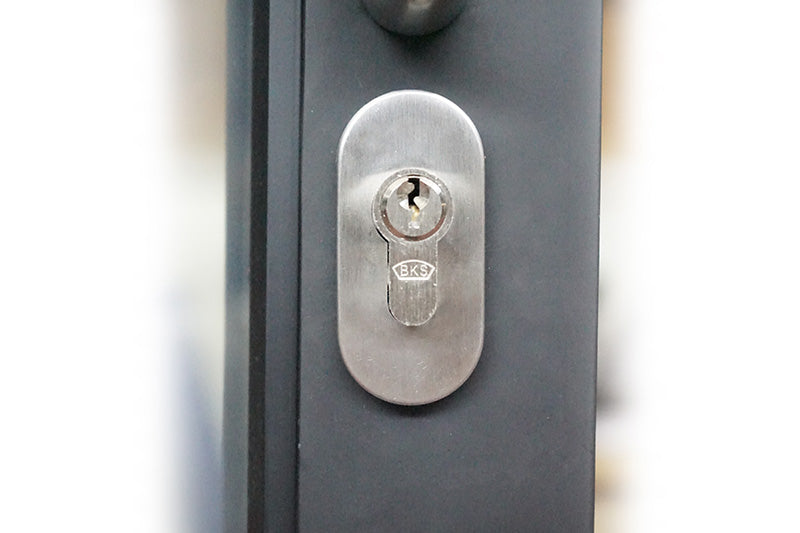
Tip 5 - The Door Frame Matters as Much as the Lock
You've bought a rock-solid lock. You're happy with the mechanism, the key slides in easily, and there's so little space available through the keyhole that it's practically impossible for somebody to trip the lock with a wire. But you're not out of the security woods yet, because there's an aspect of door hardware that can make the quality of your lock obsolete: the frame.
Imagine that you have a door frame that's dented, scraped, and simply doesn't allow you to fit the lock properly. You feel a wobble whenever you push or pull the door with the lock engaged. Now, imagine a shoulder barging into the door. The frame is only going to wobble harder, and if a thief slams on the right spot (such as a loose connection between lock and frame), they'll be in.
A loose or worn frame is a problem. So, too, is a door that fits improperly or a glass panel that's loose enough for somebody to push it out. The point is that choosing a lock that doesn’t match the frame makes it easier for somebody to knock the door off its hinges.
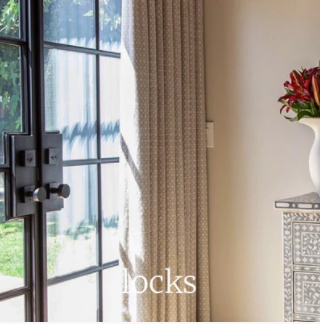
Find the Perfect Lock (and Door Handles to Match) With PINKYS
No door is complete without the right combination of lock and handle, both of which combine to form a seal that will stave off any attempt a burglar makes to get into your home. But you need to buy from manufacturers who know their craft inside and out while being able to deliver enough style to ensure the lock doesn't look out of place.

PINKYS is that manufacturer.
Our team creates the perfect lock-and-handle combinations for the doors we manufacture. We consult with our clients to make it easier for us to assist you in finding the right solution. Thumb latches, knobsets, and mortise locks are all available from PINKYS, and we're ready and waiting to start the process to ensure you get the right tool for the security job.
